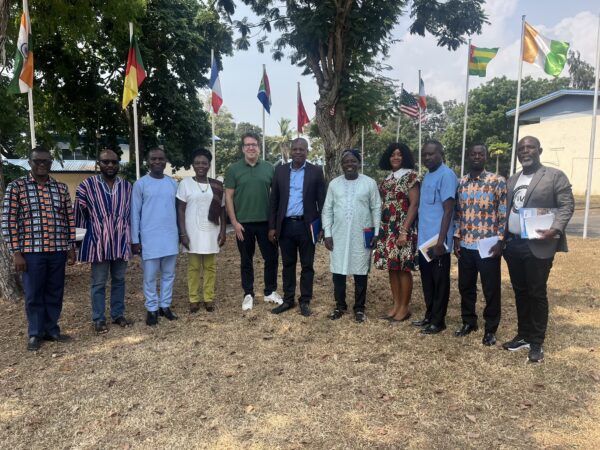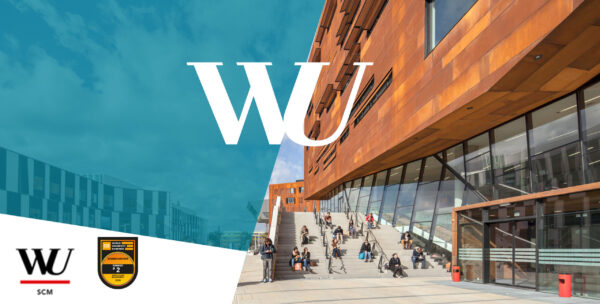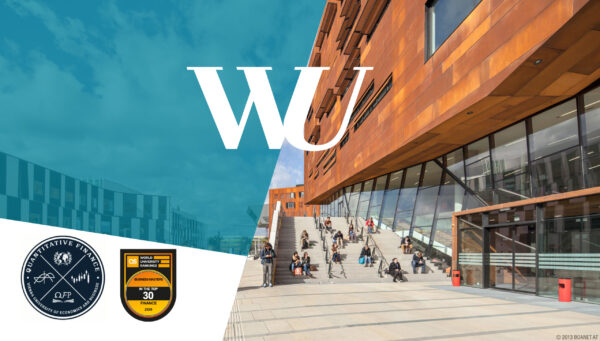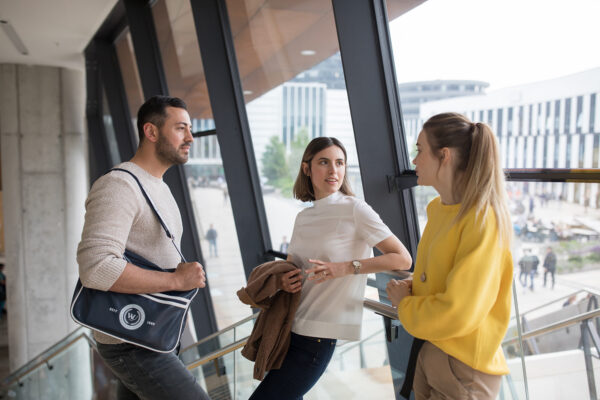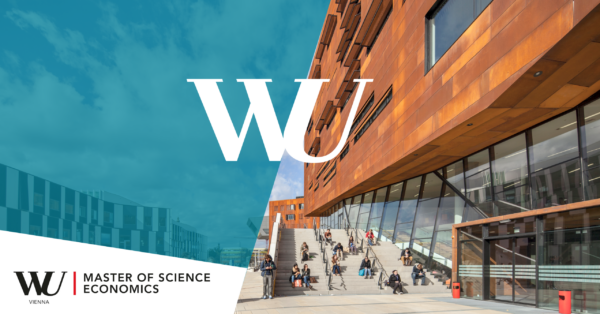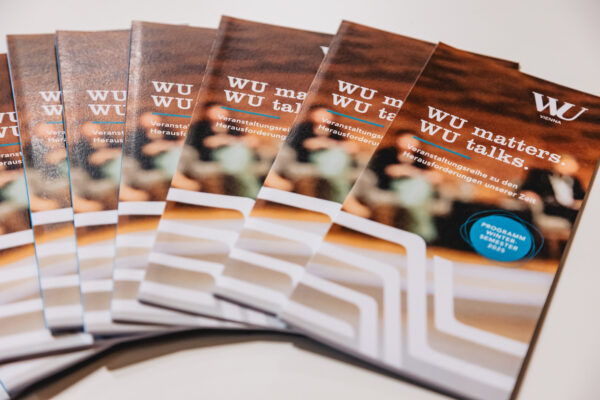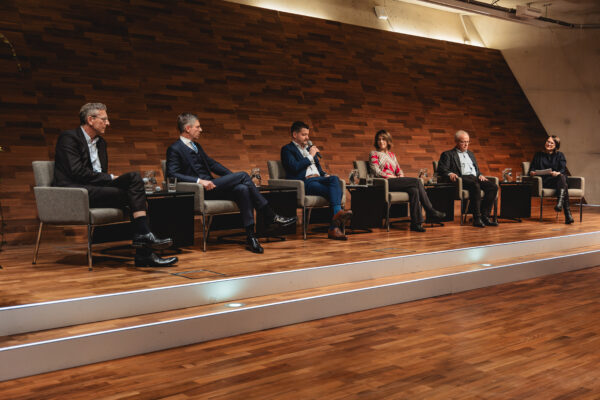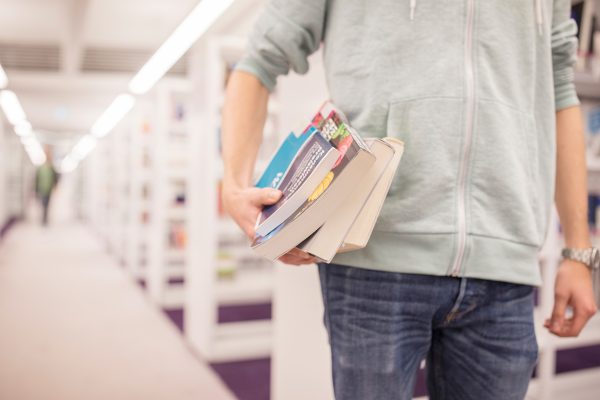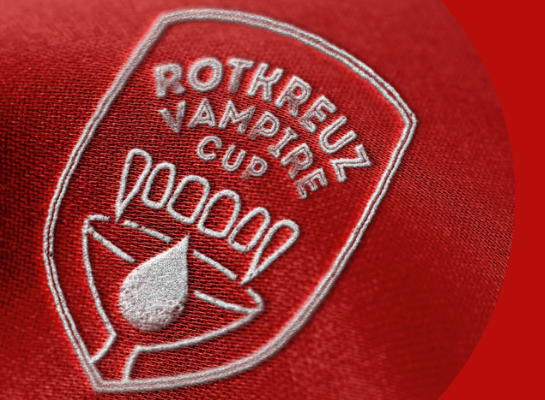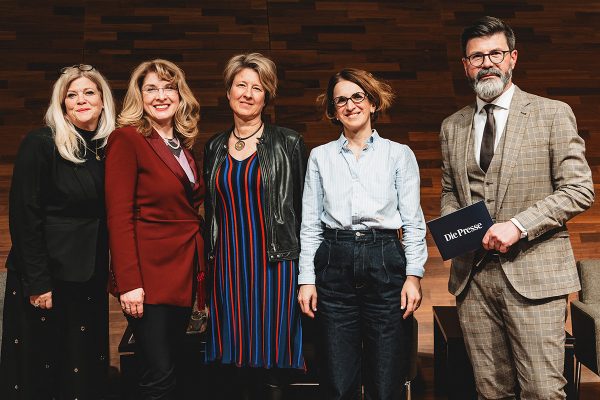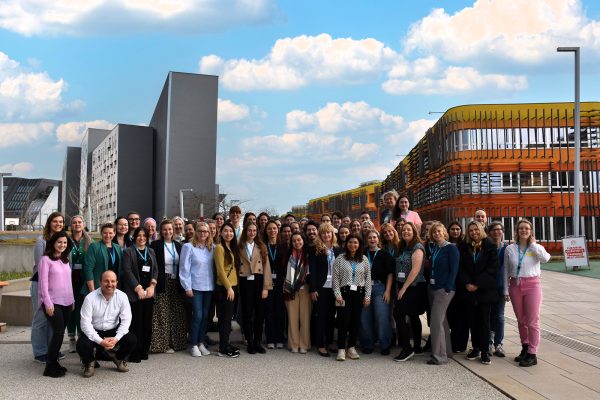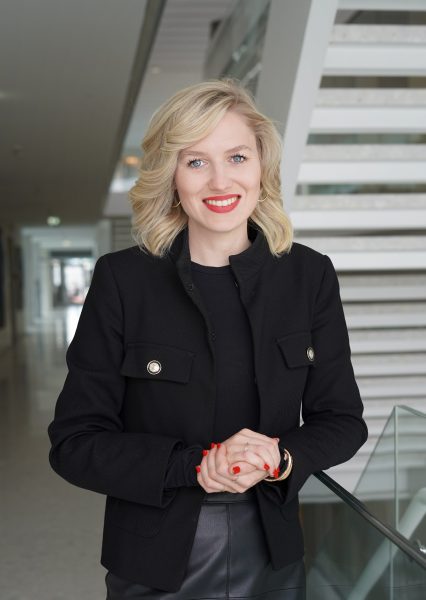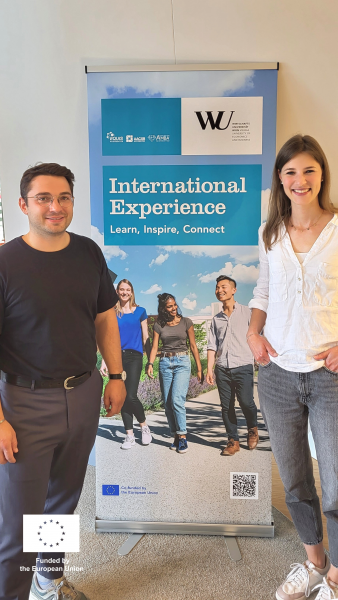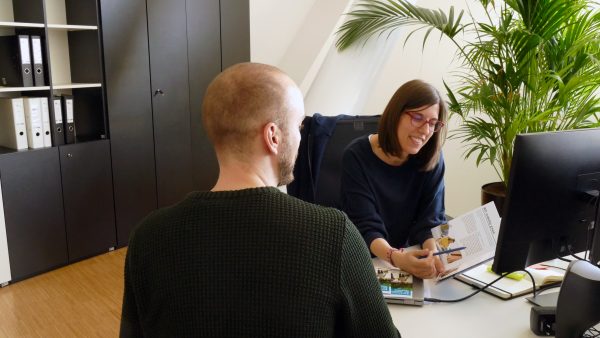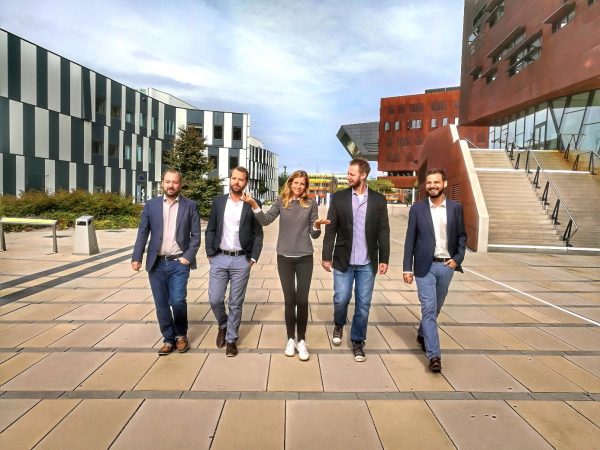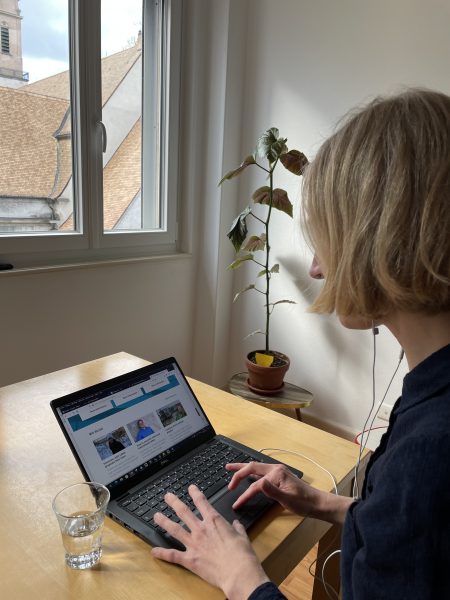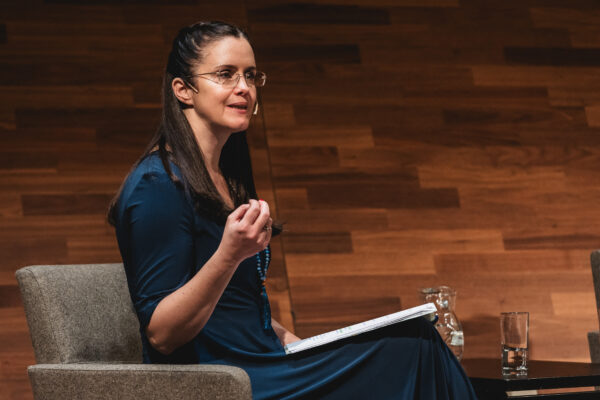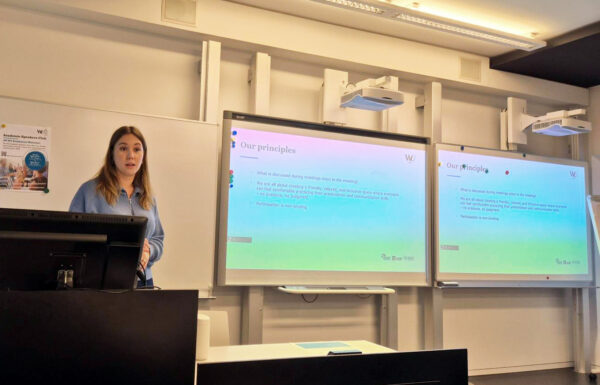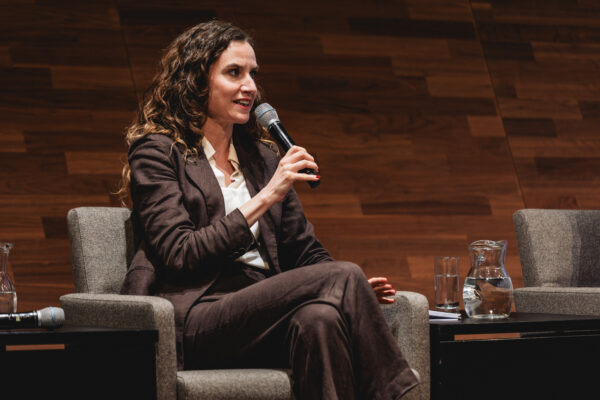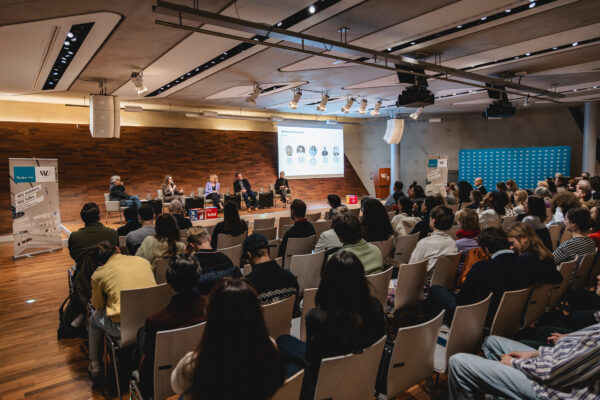Provenance research at the WU Library – the history of our books’ origins
The WU University Library holds over 680,000 printed books. However, many of these books have an unclear provenance. This includes, in particular, books that entered the library as looted property from the Nazi era. In this article, colleagues from the P r venienzforschung (Provenance Research) describe how they are researching these problematic holdings.
Returning books to their rightful owners
The aim of our research is to return books that entered the library unlawfully to their rightful owners or their legal successors. Our research focuses on the Nazi era (1938–1945), but also includes the period of the authoritarian Austrofascist regime (1933–1938).
In this way, WU is taking responsibility for the dark pages of its past and the fact that looted property found its way into our university during and even after the Nazi era. One example of this is the private library of Dr. Ernst Steiner, which was looted by the Nazi regime because of Dr. Steiner’s Jewish ancestry. At least some of the books ended up in the library of the University of World Trade (the predecessor institution of WU), where Dr. Steiner had worked as a lecturer until the “Anschluss” of Austria. With its provenance research, WU expresses its regret that its predecessor institution benefited from “Aryanization,” i.e., the state-sanctioned, systematic robbery of the Jewish population.
Did you know?
Provenance research—derived from the Latin word “provenire” (to come forth, to arise)—deals with researching the origin of cultural assets. These can be works of art, but also furniture, musical instruments, or books.
Since the late 1990s at the latest, this term has been used to refer specifically to cultural assets that were unlawfully seized from their owners during the Nazi regime or that had to be sold due to a politically induced emergency situation. The term “cultural property confiscated as a result of Nazi persecution,” or “Nazi looted property” for short, was coined for this purpose.
However, many Nazi-looted books only found their way into libraries after the end of Nazi rule, via antiquarian bookshops, as gifts, or through book exchanges. Since books can still find their way into the WU Library in this way today, we ultimately have to investigate every book printed before 1945 and acquired after 1933 as a possible case of looted property.
Detective work & international networking
In the course of our research, we examine letters and invoices as well as the inventory lists of the (predecessor) libraries, which are stored in the WU Vienna’s archive. However, many of these historical records are incomplete or we are no longer able to understand specific notes. Frequently occurring names—such as Mayer—also make it difficult to identify the correct person.
Only rarely do we find references to possible previous owners in the books. Such traces include handwritten ownership notes or dedications, bookplates (see illustration below), stamps, signatures, or special bindings.

Ex libris by Leopold Singer
In order to research the biographies of previous owners—who often had to flee or emigrate due to Nazi persecution — we also exchange information with archives and institutions worldwide. Databases that connect provenance researchers with Nazi victims and their legal successors are a great help in our research work. These include the art database of the National Fund of the Republic of Austria for Victims of National Socialism, through which we were able to establish contact with the heirs for the restitution (return) of a book.
Since we began our research in 2010, WU has been able to return eight remaining restitutions of books to their rightful heirs. The books are often returned to their legal successors at a ceremony that makes it clear that this is not just about the material value of the books, but also about Austria’s obligation to confront its own past and strive for at least symbolic “reparation” for past wrongs—however limited and insufficient that may be. While some of the heirs do not wish to have any contact, the research work often leads to an intensive exchange with others, which continues even after the restitution of the books.
From books on the oil industry to the local council
In 2015, for example, WU was able to return 696 books to Amir Singer, the representative of the community of heirs of Dr. Leopold Singer, during a ceremony. Leopold Singer was born in Vienna in 1869 as the son of Jewish merchant Wilhelm Singer and received his doctorate from the University of Zurich in 1892 with a thesis on “Contributions to the Theory of Petroleum Formation.” After Austria’s annexation to the German Reich (March 1938), Dr. Singer was also forced to declare his entire assets to the newly established Property Transfer Office, a Nazi looting agency, because of his Jewish ancestry. Leopold Singer explicitly mentioned his books in his asset declaration. In March 1939, Leopold Singer and his wife Jenny were able to emigrate to Great Britain. He died in London on June 10, 1942, at the age of 73.
Since each individual volume is signed or stamped by hand, Leopold Singer could be clearly identified as the original owner. Thematically, the focus of the books found is on the petroleum industry. In addition, there are several travel and language guides, as well as non-fiction books on art and philosophy and works of world literature.
The path these books took to the library of today’s WU Vienna University of Economics and Business cannot be traced. Although each individual title was meticulously recorded in the inventory book, we could not find any reference to the type of acquisition in any of the entries. However, it is striking that the books were added to the university library’s collection in May 1942, shortly after the purchase of 104 boxes of books from the Dorotheum in March 1942 and 87 boxes of books from the holdings of the Vugesta (the Gestapo’s administrative office for Jewish movable property) in April 1942. The renowned Dorotheum auction house, but above all Vugesta, another Nazi looting organization, played a central role in the exploitation of Jewish property in Austria.
The Singer library
Through the mediation of the National Fund of the Republic of Austria for Victims of National Socialism, we were able to contact Amir Singer in July 2014. Since October 2017, part of his great-grandfather’s private library has been on display in the permanent exhibition on oil and natural gas at the Vienna Technical Museum as a result of provenance research conducted by the WU Vienna (see also the short film on the restitution ceremony and the article in the New York Times 2019).

Presentation of the Leopold Singer Library: from left to right: Vice-Rector Univ.Prof. Dr. Stephan Pichler; Dr. Christian Klösch, TMW; Dr. Gabriele Zuna-Kratky, Director General TMW; the Singer family; second from right – Mag. Hanna Lessing, Secretary General Austrian National Fund; far right – Nikolaus Berger, MBA, Library Director WU; ©Vienna Technical Museum / APA Photo Service / Juhasz
In 2021, we were able to return a book to the heirs of Sigmund Mayer. Mayer (1831–1920) was a respected Viennese textile entrepreneur who had held a seat on the Vienna City Council since 1880. His son Felix, who had inherited his father’s library, was forced to flee to the USA after the Anschluss of Austria in order to escape persecution of the Jewish population.
In this context, the National Socialists confiscated his book collection. The restituted book, which at the time came into the possession of the University of World Trade, is entitled “Die Gemeinde-Verwaltung der Reichshaupt- und Residenzstadt Wien in den Jahren 1877 bis 1879. Bericht des Bürgermeisters Dr. Julius R. v. Newald, Wien 1881” (The Municipal Administration of the Imperial Capital and Residence City of Vienna in the Years 1877 to 1879. Report by Mayor Dr. Julius R. v. Newald, Vienna 1881). It stands to reason that this book found its way into Sigmund Mayer’s extensive library in the context of his work on the Vienna City Council.
Since we were unable to assign this book to any owner—not least because of the frequency and susceptibility to error in the spelling of the name— it was added to the National Fund’s art database mentioned above in spring 2018. In September 2019, Dr. Karina Urbach from Princeton (USA) contacted us and wrote that her great-grandfather Sigmund Mayer had owned a large private library in his house in Döbling and that his son Felix had inherited this collection. It was looted by the Nazis in 1938. On July 22, 2021, the book was restituted to Karina Urbach at the Jewish Museum Vienna, where she presented her publication “Das Buch Alice . Wie die Nazis das Koc h buch meiner Großmutter raubten” (The Book Alice: How the Nazis Stole My Grandmother’s Book).
Want to find out more?
Here you can read in detail about all the restitutions that have taken place so far. Or contact the Provenance Research Team at the WU University Library:
- PD Dr. Johannes KOLL johannes.koll@wu.ac.at
- Regina ZODL regina.zodl@wu.ac.at
